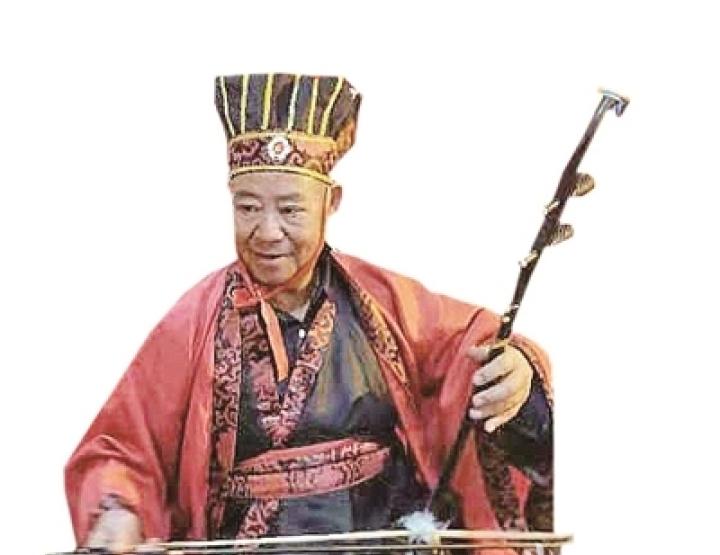In ancient times, people heard the sound of thunder, rain, and wind like a magnificent symphony, forming the earliest music; people received it from unintentionally to intentionally listening, and the five tones were produced, and the gongshang horn Zhengyu corresponded to the five internal organs of the people, and the gold, wood, water, fire, and earth of the universe corresponded to the universe...
This is a very interesting statement about the origin of music that I have heard, when we indulge in various world famous songs, all kinds of popular music, all kinds of classical or modern songs, and then listen to the sound of the wind blowing wheat waves and the babbling of the river, don't you think that is the most beautiful sound? Explore the magical charm of Dongjing music in the repeated cycle from ancient times to the present, and then from the present to the ancient times. We must return to nature in order to see the connotation, value and contemporary significance of Dongjing music as an intangible cultural heritage list.

The "Preface to the Yijing" is the oldest piece of music in Qujingdongjing and has been passed down for 3,000 years. Today, we can still hear this music from ancient times in the routine rehearsals or performances of the Dongjing Music Troupe in Qujing City. According to relevant written records, a small quotation from the "Wenchang Dadong Immortal Classic" of the "RenXiaoTang" of the Cave Scripture Association of Nanning County (Qujing County) indicates that the Qujing Cave Scripture activity has begun since the Yuan and Ming Dynasties, and the qujing Cave Scripture music activity has been quite popular in the late Ming and early Qing dynasties.
Qujingdongjing music is a unique local music variety in our province, a form of folk music with folk sacrifices as the main content, a kind of elegant music that literati gather and talk about, and later gradually spread to agriculture, industry and commerce, and then spread to many rural market towns. According to the "Qin Jing" and "Dian Series Volume 40", "Zhuge Liang's southern expedition in 225 AD, in the upper reaches of the Panjiang River (Qujing) to ambush Mengyu, it was night, the father and elder in the city set up a court to burn fire to welcome the Shu master, Zhuge Liang was on the city tower, saw that the Dian people could sing and dance, so he stroked the qin to congratulate. "Since then, the Dian people have begun to learn the piano, the sound of the seven strings and thirteen emblems, and have created many beautiful folk songs and dictionaries. This became the basis for orchestral, percussion, and plucking in cave music.
During the Kangxi Dynasty, Zhao Shilin, a jiachen jinshi, said in the Preface to the Poetry of the Ming Dynasty: "Xinggu (Qujing), Ye Yu (Dali), Weichu (Chuxiong) and other places, the relocation of the cheeks of many victorious countries, the remains of Rongxing, and the afterglow of the wind and currents of Jinling Wuyue are gradually becoming more and more intense." For hundreds of years, poetry has been moist and new, famous cultural relics, and polite and elegant. It can be seen that the historical origin of Qujingdong's music is very long and has had an extremely brilliant process.
The dongjing music in the history of Qujing is mainly named after the "Taishang Yuqing Wuji ZongZhen Wenchang Dadong Immortal Classic" (hereinafter referred to as the "Wenchang Dadong Immortal Classic"). Commonly used song cards are "Hillside Sheep", "Little Partridge", "Nanjin Palace", "Yanluo Beach", "Willow Shake Gold", "Song Feng Yun", etc., the commonly used warp tones are "From Canghu", "Big Hole", "Mantra Candle", "Incense Offering", "Flower Offering", etc., gong and drum song has "Tietou", "Guangguang Chuan", "Fluttering Light Fluttering Guangchuan", "Weasel", "Didi Jin", "Turning over the mountain" and so on. Judging from the name, the tunes are either from the court or from the people.
Elementary school students interact with the players of the Dongjing Music Troupe.
On a weekend afternoon in March, I specially invited the artists of the Qujing Dongjing Music Troupe to have a "close contact" with a group of primary school students. After listening carefully to three representative Dongjing songs, the children said: "The music I heard today is very different from what I usually hear!" "This is a song from two or three thousand years ago, even your parents will feel very strange when they come to listen to it, and Chinese classical music and traditional music are a bit strange to modern people, let alone Dongjing music." Some experts explain.
Some listeners said that when you hear "Sheep on the Hillside", you feel the natural beauty of the wind and the sun and the breeze; when listening to the "General's Order", some listeners feel that the sonorous drum sound is like a warrior about to go out, and it is also like feeling the excitement and excitement of welcoming the soldiers to triumph.
Elementary school students listen to the music of the Cave Sutra together.
In the ocean of intangible cultural heritage in Yunnan, the melodious Qujingdongjing music is unique in its unique musical form, the style, singing voice and percussion are very individual, its charm is timeless, and its inheritance and protection have a long way to go.
(Qujingdong Jing Music was included in the Qujing Municipal Intangible Cultural Heritage Protection List in October 2013, and declared for inclusion in the Yunnan Provincial Intangible Cultural Heritage Protection List in December 2013.) )
Cui Yanying text/photo